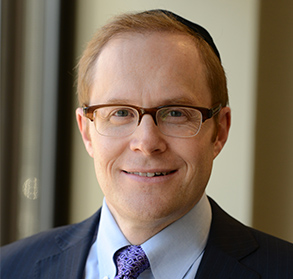09/16/2016
DAFs Flexible Complement to Estate Plan
- Share This Story

Matthew A. Kaliff
Matthew A. Kaliff | SPECIAL TO THE CJN
Article reprinted with permission from Cleveland Jewish News.
There are well over 200,000 active donor advised funds in the United States, and they are an increasingly popular way for individuals and families to manage their charitable giving. A donor advised fund is a named account established by one or more persons who retain the privilege to make charitable grant recommendations from the account’s assets. Many local and national charitable organizations operate DAF programs. Although donors typically use DAFs for current charitable giving, a DAF can be very convenient in testamentary planning as well. Two examples will illustrate how a DAF can facilitate bequests and mitigate potential taxes.
Jeff and Lisa are finalizing the details of their will. It provides generously for their three children, but Jeff and Lisa feel strongly about including charitable bequests as they proudly support several charities. In fact, Jeff and Lisa use a DAF to recommend annual grants to these organizations. Jeff and Lisa initially thought about using their will to designate specific bequests to their six favorite charities. However, what if their interests or the organizations change over time and the charitable bequests no longer match Jeff and Lisa’s charitable priorities?
Fortunately, the DAF they already use for current gifts can also make testamentary gifts. Jeff and Lisa asked their lawyer to include a single charitable bequest to the DAF in their will. At the same time, they gave a letter to the DAF sponsor spelling out their testamentary grant recommendations: Upon receipt of the bequest from the will, the DAF should make grants to each of six named charities in equal amounts. If Jeff and Lisa ever decide to revise the list of charities or the grant amounts, they can simply give a new testamentary recommendation letter to the DAF sponsor. No changes to their will be necessary and thus no legal fees.
Jeff also has a traditional IRA. An IRA is treated separately from a will so Jeff needs to update the IRA beneficiary designations. As Lisa has sufficient income and savings, Jeff does not feel he needs to designate her as beneficiary of his IRA. He considered designating his and Lisa’s three children, but they could be subject to income and estate taxes upon receiving the IRA assets. This would substantially dilute the savings Jeff accumulated in the IRA.
However, a charitable IRA beneficiary, such as a DAF, receives IRA proceeds tax-free. Therefore, Jeff decided to name the existing DAF he and Lisa already use as a beneficiary of his IRA. He also appointed the three children as advisers to the DAF. This approach gives Jeff and Lisa’s children philanthropic wealth in addition to the inheritance from the will, and it avoids taxes on the IRA proceeds.
A donor advised fund offers many advantages for current and testamentary charitable giving.
Matthew A. Kaliff is assistant director of endowment development at the Jewish Federation of Cleveland. To contact him, email mkaliff@jcfcleve.org or call 216-593-2831.

